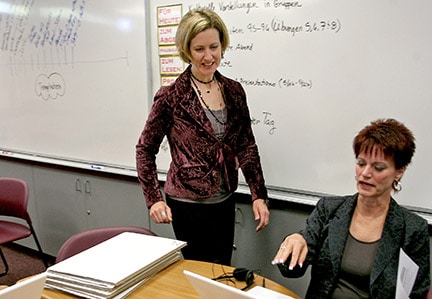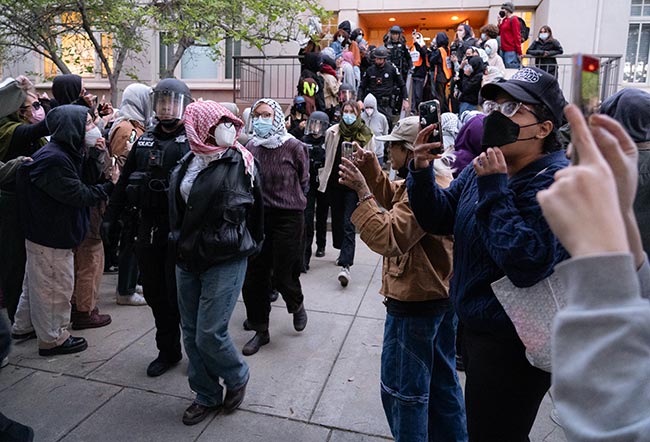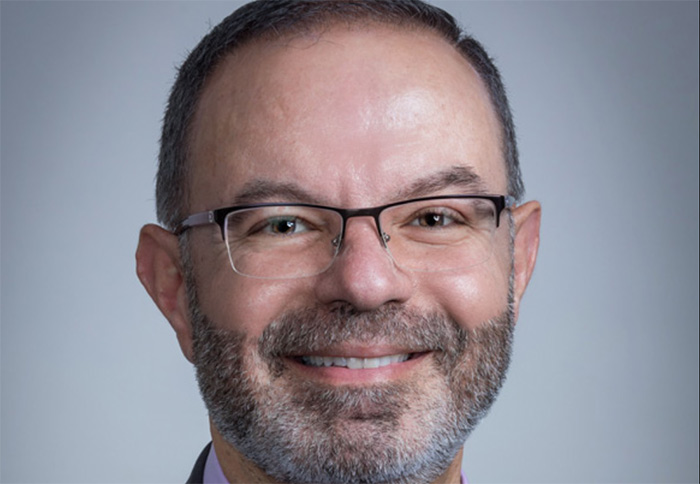CHS festival to offer fun discovery of the written word

Tamara Nicoll is on a righteous mission to elevate the written word, and after a lot of hard work, she’s making headway. Ms. Nicoll is spearheading the inaugural literary celebration, “Word Play: A Festival of Writing,” Saturday, May 19 at Claremont High School from 10 a.m. to 2 p.m.
“The primary objective of this event is to inspire students with a positive mindset about the transformative power of written expression,” said Ms. Nicoll, a CHS English teacher since 2005.
The Festival of Writing, developed over the course of the past year by Ms. Nicoll and a group of like-minded CHS faculty and students, will include the work of young writers from Claremont and San Antonio High.
There will also be interactive word games, book-related crafts, local literary organizations’ and libraries’ displays, one-on-one conversations with authors and a children’s area
The festival will also feature food trucks, a bake sale, and Mrs. Nelson’s book fair.
“We thought we were going to start small, but it seems a little bigger than small now,” Ms. Nicoll said. Admission is free for the family-friendly event.
Seed funding came in the form of a $1,500 grant from the Claremont Educational Foundation, which wrote at the time, “In this ambitious project, Tamara Nicoll attempts to close the gap between many students’ reticence to write and the powerful impact of written expression. Festival of Writing will engage students in a year-long exploration of the written word as an important means of understanding the human experience.”
All of this is in the face of a decades-long downward trend in funding for creative writing in public schools, and the arts in general.
“I’ve taught for 26 years, and I’m tired of testing driving the conversation about student writing,” Ms. Nicoll said. “I just think there’s such a role for creativity and innovation, and I don’t think kids know about that yet.”
California high school English standards—both pre- and post-Common Core—haven’t done a good job in addressing the intrinsic value of creative writing, Ms. Nicoll said.
“From a school perspective, the standards that teachers taught to for so many years didn’t even have the word ‘poetry’ in them,” she explained. “There wasn’t any room to really be a creative writer in those standards. It was all about skills.”
The emphasis, Ms. Nicoll said, has been on how convincingly students can complete a five-paragraph essay.
“And when you give those messages to kids again and again and again, over time, the whole conversation about writing to know what you think or to get through hard times or for other reasons, that gets put on the back burner or gets forgotten altogether.
“I’m not saying that academic essay writing isn’t important, because it is, and I hope we have a lot of it on display at the festival, but the power of writing goes so far beyond standardized testing and standardized learning. We need to work as an entire community to help teach students that writing is fun and that words are powerful.”
Mark Givens, owner of Pelekinesis, a local publishing house, will take part in the event.
“It’s great and is really needed in this area,” he said. “I’m excited it’s starting small, with a group of interesting and interested people, and I’m excited that she reached out to the local literary community and to the public in general. This is the right path. I think it’s going to grow and connect people.”
Pelekinesis authors Allen Callaci, whose debut memoir Heart Like a Starfish was released in 2016, and Jo Scott-Coe, whose doggedly-researched nonfiction work, MASS: a Sniper, a Father, and a Priest, came out this year, will also appear at the festival.
COURIER Editor Kathryn Dunn will participate, as will local authors Sam Silvas and Becca Spence Dobias, among others.
Making a living in America as a writer, or as any other kind of artist, is of course notoriously difficult. Unlike most of Europe, we don’t have longstanding institutionalized arts support (the beleaguered National Endowment for the Arts notwithstanding) built into our culture. It’s a tough arena, Ms. Nicoll acknowledged, but she stressed an axiom that can be difficult to impart to young artists: money isn’t everything.
“That’s why I’m relying on people like you and other people that work with words for a living to come in and say, ‘Hey, I work with words for a living, and it’s a cool living,’” she said. “It’s not just a living because you get money for it. It’s a living in which you’re contributing to culture, you’re leaving a legacy of ideas for others, and you’re putting ideas out there for others to consider. When you think about what reporting for the COURIER does for our community, that’s indispensable. We need to not take that for granted, and to put that on center stage and let people hear about that.”
Altruism was clearly the spark for the Festival of Writing, and the programming side borrows in part from the hugely successful Los Angeles Times Festival of Books, which recently held its 22nd annual event and sees crowds of 150,000 each year.
“I’m hoping that this year works,” Ms. Nicoll said. “I’m nervous. Anytime you do anything new and outside the box there’s the opportunity for it to fail, but the goal of celebrating the power of the written word is so important that we need to keep coming back to it year after year until it takes hold until we start to reframe the conversation and help make the cultural shift. I think it’s worth the effort.”
If you’re on a mission, you need that altruism, which Ms. Nicoll clearly possesses in spades. You also need determination, good people around you and patience. And, if the hugely successful LA Times Festival of Books is any indication, folks will support a well-organized event that celebrates literature. The Festival of Writing seems to check all those boxes, but still its creator doesn’t want to get too far ahead of herself.
“I don’t think I’m going to solve all these woes with the inaugural festival,” Ms. Nicoll said. “But if we start the ball rolling, and I do it again next year and again the year after that, I see the way it could grow organically for our community and the surrounding communities. It’s a starting point.”
More information is available at chswordplay.com.
—Mick Rhodes
mickrhodes@claremont-courier.com








0 Comments